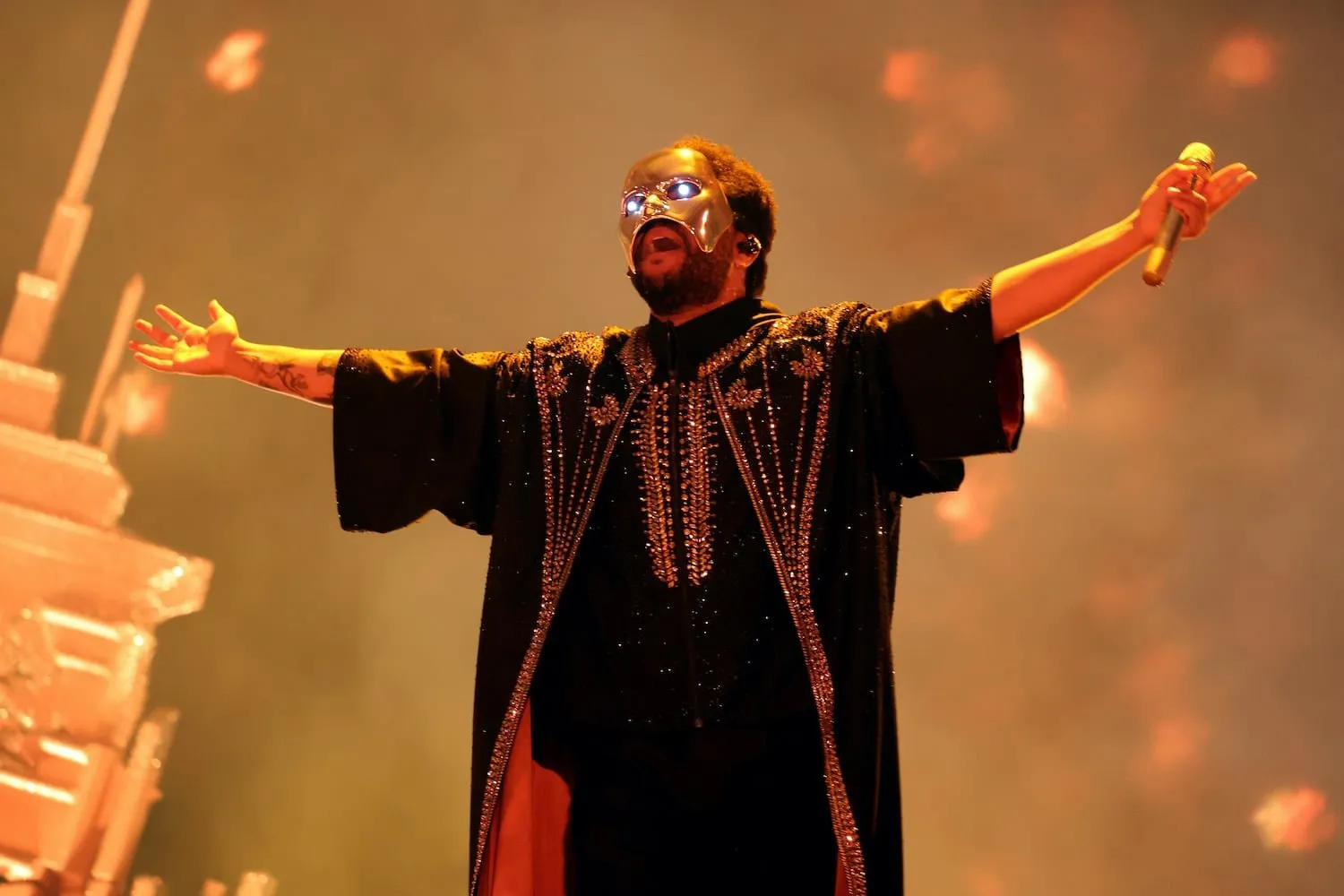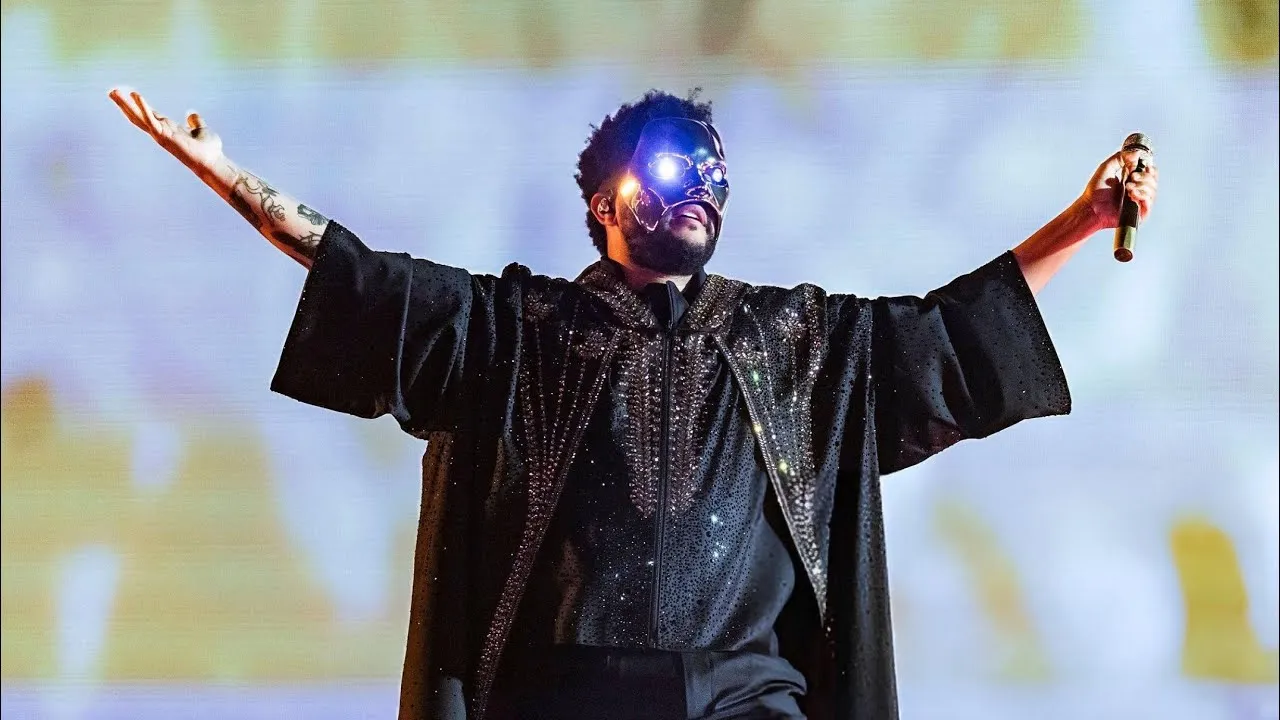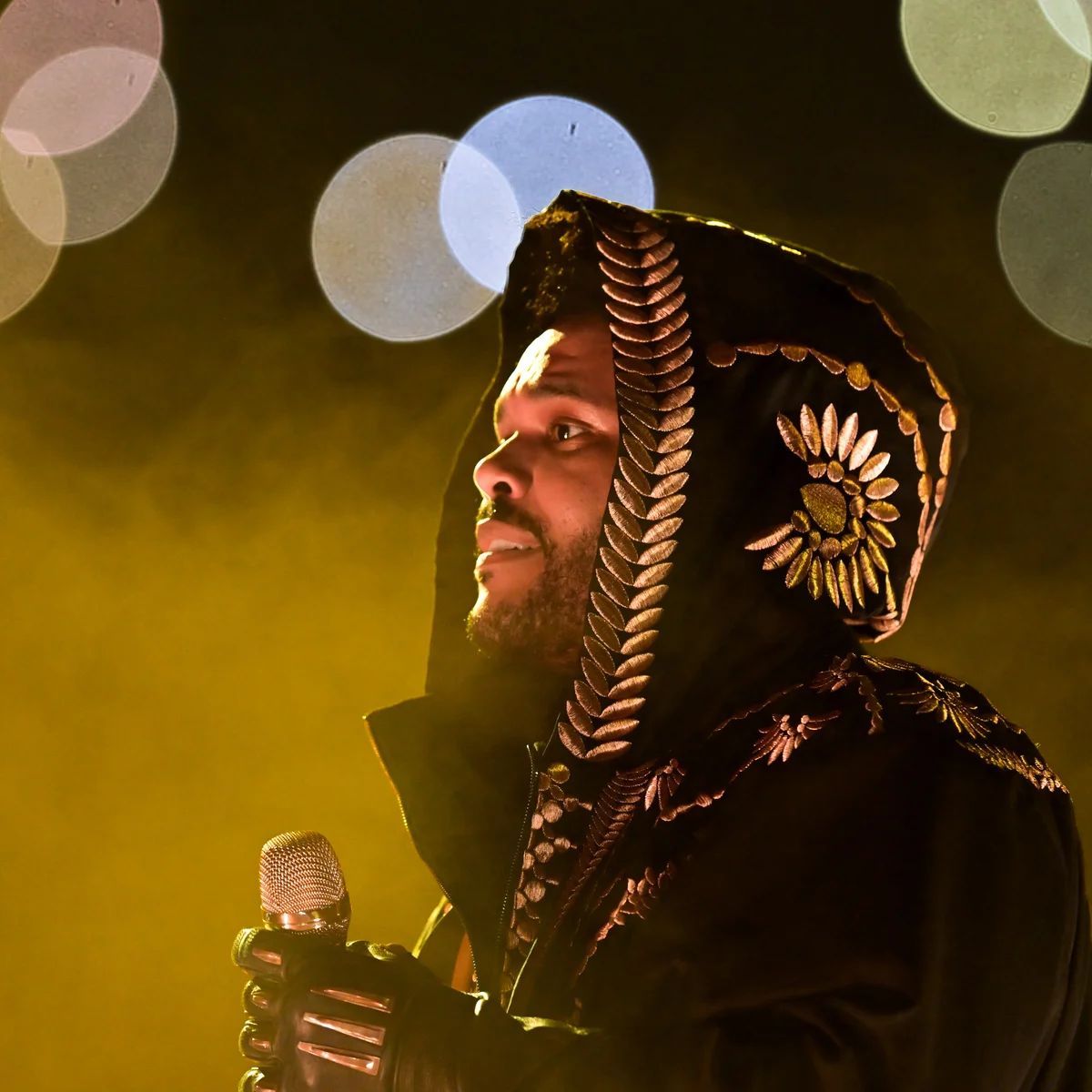

80 Billion Streams Later – Did The Weeknd Just End the Streaming GOAT Debate?
In the ever-expanding universe of digital music, streaming numbers have become more than just statistics — they are now badges of cultural dominance, testaments to influence, and markers of musical immortality. In this ultra-competitive arena, where even milliseconds of attention matter, one name has carved itself into the very fabric of streaming history: The Weeknd. With a staggering 80 billion streams across global platforms, the Canadian megastar may have just ended the conversation around who is the greatest streaming artist of all time, or as the internet lovingly calls it, the Streaming GOAT.
But does this monumental number truly cement The Weeknd’s place at the top of the streaming hierarchy? Or is there more to this story than just digits? Let’s dive deeper into the significance of this milestone, its broader cultural impact, and whether it conclusively closes the door on the debate once and for all.
A Journey From the Shadows to Streaming Glory
To understand the weight of this achievement, we must first acknowledge The Weeknd’s evolution. Starting with mysterious mixtapes on YouTube and Tumblr in the early 2010s, Abel Tesfaye, the man behind the moniker, was once an enigmatic figure whose anonymity was as much a part of his allure as his ethereal falsetto. Those early days, characterized by a haunting blend of R&B, synth-pop, and atmospheric production, set him apart from the mainstream. He wasn’t chasing the spotlight — he was reinventing what it meant to be an artist in the digital age.
What’s remarkable is how The Weeknd transitioned from niche cult favorite to mainstream juggernaut without compromising the essence of his sound. His music always felt like a nocturnal dreamscape — moody, vulnerable, cinematic — yet he managed to morph it into chart-topping, record-breaking hits. Tracks like “Can’t Feel My Face,” “Starboy,” and “Blinding Lights” didn’t just dominate radio; they dominated global playlists, setting the tone for what modern pop could be.
And therein lies the core of his streaming success: versatility, consistency, and an uncanny ability to stay one step ahead of musical trends.
80 Billion Streams: More Than Just a Number
While 80 billion is a jaw-dropping figure on its own, it’s important to consider what it represents in context. In the era of algorithm-driven consumption, where attention spans are short and listeners are bombarded with choices, maintaining longevity and relevance is perhaps the most challenging feat for any artist. The fact that The Weeknd’s catalog continues to generate billions of streams annually, with no sign of slowing down, speaks volumes.
Let’s not forget that “Blinding Lights” recently became the most streamed song in Spotify history, dethroning giants like Ed Sheeran’s “Shape of You.” That single alone accounts for over 4 billion streams. And while some artists hit stratospheric heights for a brief moment, The Weeknd’s stream counts span across multiple albums, eras, and sonic styles — from the rawness of “House of Balloons” to the cinematic sweep of “After Hours” and the experimental textures of “Dawn FM.”
This consistency and adaptability aren’t just luck. They’re the result of strategic vision, tireless innovation, and a deep understanding of both artistry and audience.
Defining the Streaming GOAT
To determine whether The Weeknd truly deserves the Streaming GOAT title, we need to examine what the term even means. Is it about total stream count? Impact per song? Cultural relevance? Perhaps it’s a combination of all these elements.
When compared to other streaming powerhouses like Drake, Taylor Swift, Bad Bunny, or BTS, The Weeknd’s advantage lies in his unique positioning. While Drake is known for frequent releases and dominating the rap charts, and Taylor Swift’s streaming rise has accelerated with the Taylor’s Version phenomenon, The Weeknd’s catalog benefits from a different kind of staying power. His tracks don’t just rise to the top — they linger. They don’t just trend — they endure.
Spotify, Apple Music, YouTube, Amazon Music — regardless of platform, The Weeknd’s presence is ubiquitous. His success isn’t limited to North America either. He commands audiences globally, from Europe to Latin America to Asia. That global reach is part of what makes this 80 billion milestone feel so definitive. It’s not just about quantity; it’s about breadth and depth of influence.
Beyond the Numbers – The Cultural Impact
Streaming stats are quantifiable, but cultural impact is harder to measure — yet just as important. And this is where The Weeknd’s legacy deepens.
His music has consistently soundtracked the collective consciousness. “The Hills” became a cultural reference point for emotional detachment in toxic relationships. “Save Your Tears” turned vulnerability into an arena anthem. “Blinding Lights” didn’t just dominate charts; it shaped TikTok trends, was featured in Super Bowl commercials, and became the de facto anthem of 2020 — a year defined by isolation and nostalgia.
Moreover, The Weeknd’s aesthetic, from his signature red suit to the grotesque plastic-surgery-inspired visuals of the After Hours era, has influenced everything from fashion to film. He isn’t just streaming hits — he’s crafting visual and narrative universes around them. His recent foray into acting and screenwriting, like his involvement with “The Idol,” shows that his cultural ambitions extend far beyond music.

In many ways, The Weeknd has become a pop culture architect, designing moments, moods, and movements that resonate across multiple mediums.
Contenders in the Arena
Of course, no throne goes unchallenged. Drake, arguably the most streamed artist on Spotify, still boasts massive numbers and a loyal fanbase. His frequent releases and features ensure he remains ever-present in the charts. Taylor Swift, meanwhile, has turned the music industry on its head by re-recording her old albums and turning streaming into a form of artistic retribution and narrative control.
Then there’s Bad Bunny, whose rise is perhaps the most significant in recent streaming history. Dominating Latin markets and beyond, his music consistently tops global charts despite being almost entirely in Spanish — a feat that shatters language barriers and challenges traditional industry norms.
But while each of these artists has a claim to greatness, The Weeknd’s 80 billion streams feel different. They reflect not just success, but a sustained relevance and evolution that few others can match. His musical identity has shifted, matured, and expanded without losing its core — a rare balance of reinvention and authenticity.
The Future of Streaming and the Legacy of The Weeknd
What does the future hold for streaming giants like The Weeknd? As platforms evolve, new technologies like AI-generated music, spatial audio, and immersive AR/VR experiences may reshape the very landscape of how we consume music. But if history is any indicator, The Weeknd won’t just adapt — he’ll lead.
He’s already demonstrated a knack for staying ahead of the curve. His NFT drops, his collaboration with Universal Music Group to create a multi-platform character universe, and his active involvement in voice technology and virtual concerts, like the one in TikTok’s augmented reality experience, show an artist who is not only reactive but proactive in shaping his digital legacy.
As the next generation of listeners grows up with his music already enshrined in playlists, charts, and social media memories, The Weeknd’s status as a streaming legend will only deepen. His ability to resonate across demographics, languages, and platforms ensures that even as the industry shifts, his position in its pantheon will remain secure.
So, Did He End the Debate?
80 billion streams later, it’s hard to argue that The Weeknd hasn’t at least reshaped the conversation. Has he definitively ended the Streaming GOAT debate? Perhaps not entirely — music is subjective, and the industry is ever-changing. But what he has done is set a new benchmark, not just in numbers, but in artistry, innovation, and cultural imprint.
He has proven that an artist can be enigmatic yet wildly successful, experimental yet commercially viable, and globally beloved without ever pandering. He’s not just chasing greatness — he’s defining what greatness looks like in the streaming era.
So while the debate may rage on in barbershops, fan forums, and Twitter threads, one thing is clear: The Weeknd isn’t just part of the conversation. He is the conversation.



















